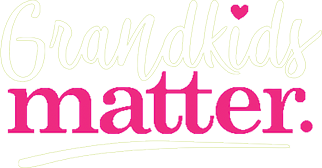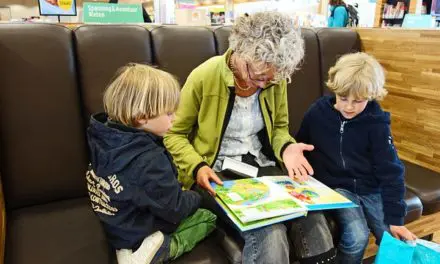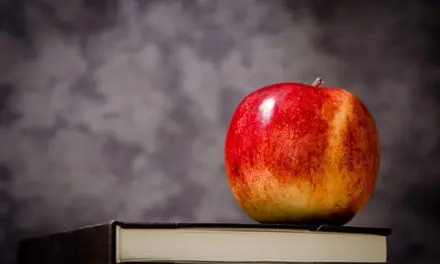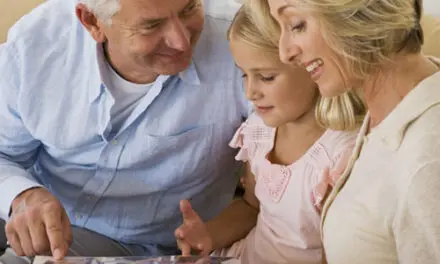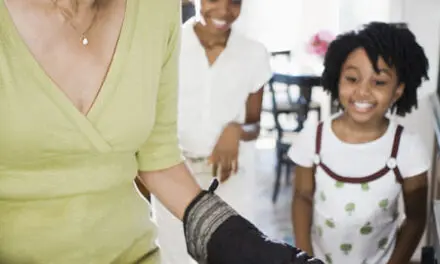by Elaine McAllister
It’s a sobering thought, but family stories are generally lost within three generations unless they are preserved in writing or by some other means.
Let’s face it: we are a disposable people living in a disposable era. Thanks to the instant gratification of this electronic age, life is a blur and we rarely recognize what’s being lost until it’s too late.
Descendants Need to Know!
I’m passionate about generational storytelling and believe that, by intentionally preserving and sharing family stories with the younger generations, we impact them in positive ways.
Several years ago, Dr. Robyn Fivush and Dr. Marshall Duke of Emory University’s Family Narrative Project developed the “Do You Know Scale” to measure how much children know about their family histories. This scale is said to be the best single predictor of a child’s emotional health and happiness. The results of their study (published in 2008) further convinced me of the value of sharing family narratives across generations.
Maya Angelou would have agreed, as she once said this:
Today, people are so disconnected that they feel they are blades of grass, but when they know who their grandparents and great grandparents were, they become trees, they have roots, they can no longer be mowed down.
We need to share family history with our descendants as often as we can.
Generational Storytelling for the Win!
Now, you may say, “That’s cool, but I’m no writer! I can’t do that!” Yes. You can. Really!
Most of us learned the basics of writing in elementary school and we couldn’t have graduated without many opportunities to write papers. Bonus: When you’re writing family stories, there are no red-pen-in-hand teachers ready to grade your efforts. You’ve got this!
Your next excuse may be, “I don’t know where to begin!” Perhaps I can help.
Elders are our most overlooked resource for family stories, and they’d like nothing more than to have you stop by to ask questions. If you still have elders, don’t miss the opportunity to ask them about their life. Some of us don’t have that luxury.
A “How To” for Interviewing Elders
If you have a parent or other older relative who’s still alive, reach out and ask if you can stop by for an interview, then get it scheduled! Chances are they’ll be happy to visit with you about their past, and they’ll be happy for the company, too. Take along some device on which you can record the conversation. Better yet, take along a grandchild as your tech assistant – a great way to involve the younger generation in your generational storytelling project.
Remember to ask questions that require more than a “yes” or “no.” Open-ended questions are best; questions that begin with “Tell me about a time when you…” or “What was your reaction to the…” or “What was it like when you…” or “What was your best childhood memory, and why?”
Engage your Independent Elders
My mom was full of so many stories she wanted to share, but late in life she lacked the motivation to do so because she saw it as an insurmountable task. A practical solution—an ordinary composition book—is now a family treasure. On each page of “Mama’s Random Ramblings” I wrote a writing prompt (examples below). When she was bored, she would choose a prompt and respond, then another, and another. Her short and sweet stories, in her handwriting, are priceless.
When I was a little girl, some of my favorite memories included the days…
When I was born, the president of the United States was…
One day, I was shocked to find out…
The first year of our marriage was hard because…
…but it was great because…
I learned the most about myself when…
If I were to list some “must-read” books, my list would include…
Of all the states I’ve visited, the most beautiful was…
…the greenist was…
…the most desolate was…
…the most memorable was…
When I was a child, I spent most of my time…
My family’s mode of transportation was…
The one thing I hope my kids and grandkids remember about my childhood is…
Years later when she was unable to write legibly, she gave me the book and said, “You ask me the questions. We don’t want to lose these moments.” So, I recorded her verbal responses, adding the date and my initials to the remaining prompts.
This practical, easy-to-create tool helped my mother share unheard of stories and gave us treasured memories.
Discover your Ancestors
Perhaps you are the eldest in your family and you’ve inherited a trunk full of ‘junk’ from Great Aunt Agatha. Let me encourage you to dig through it. Look for photographs and documents (citizenship papers, land records, marriage records, diaries, letters), then write about what you find.
Research the era of your ancestors and maybe even their locale. You’ll learn things to enhance your family stories. For example, perhaps a Civil War battle took place near your great grandparents’ home. Or maybe some of your ancestors were farmers in western Kansas during the Dust Bowl. Supplemental information can help you understand your ancestors, plus it’ll bring history to life for your descendants.
You’ve heard many stories over the years, so record them—either in your own handwriting or on the computer. The results will bless your descendants and you might also be blessed by taking a stroll down memory lane.
What About Heirlooms?
Remember, we’re a disposable people, so be sure to record the significance of family heirlooms—furniture, quilts, vases, books, etc.—or those things may fill a landfill after you’re gone. If you know of a family heirloom which is not in your possession, you can ask to take a picture of it and then write about it.
Someone I know once told me she was tired of an old buffet which had belonged to her parents. She planned to sell it online and wondered if $25 was a good price. After learning its history, it became more valuable to her. She still has it. An heirloom was saved!
Just Do It!
I recently led a 5-week workshop on Generational Storytelling. Enthusiastic but overwhelmed participants have tons of information, photos, and memorabilia but they lack motivation.
I shared ancestor profiles and heritage album ideas. We talked about making time to write for just 30 minutes a day, if possible. I gave them tips for researching and sites to visit for supplemental information. They learned about preservation techniques, research resources, and writing tips. Best of all, they got rejuvenated when they recognized the value of the task before them.
The stories I heard week after week were awesome and I can’t wait to see them in print. Not because they’ll be on a best-seller list, but because I know those stories will soon be shared with their children, grandchildren, and great grandchildren. I’m certain of it. Success!
Elaine McAllister is an award-winning, multi-genre author, columnist, blogger, journalist, and speaker who lives with her husband, Jim, somewhere in the middle of Kansas. Her books include Celebrate Grandparenting: 101 Ideas to Intentionally Connect with your Grands. She is passionate about generational storytelling and grandparenting, and is especially fond of eight (soon to be nine) of the best-ever kids who know her as Gramma Mac. Connect with Elaine on Facebook here or online at elainemcallister.com.
